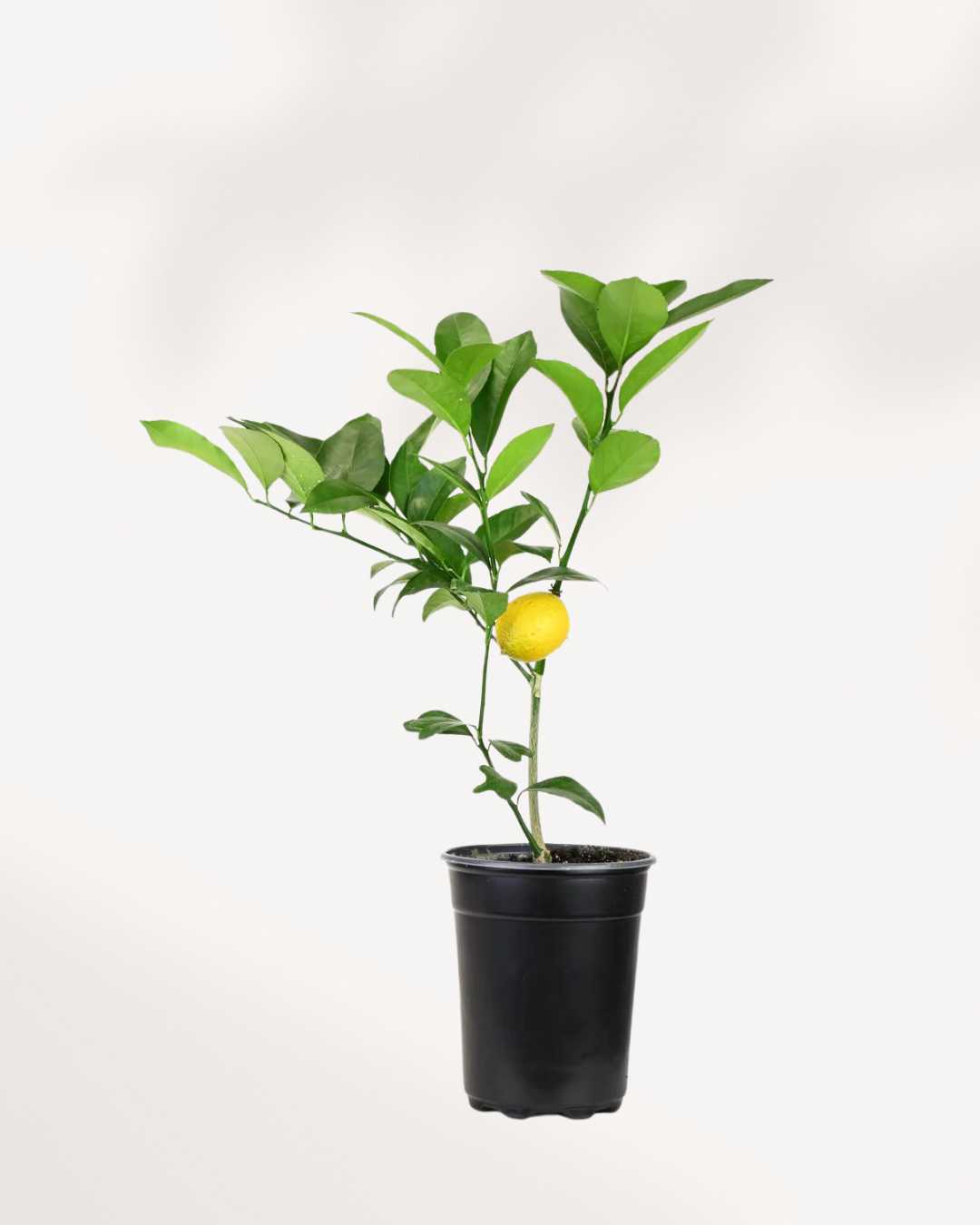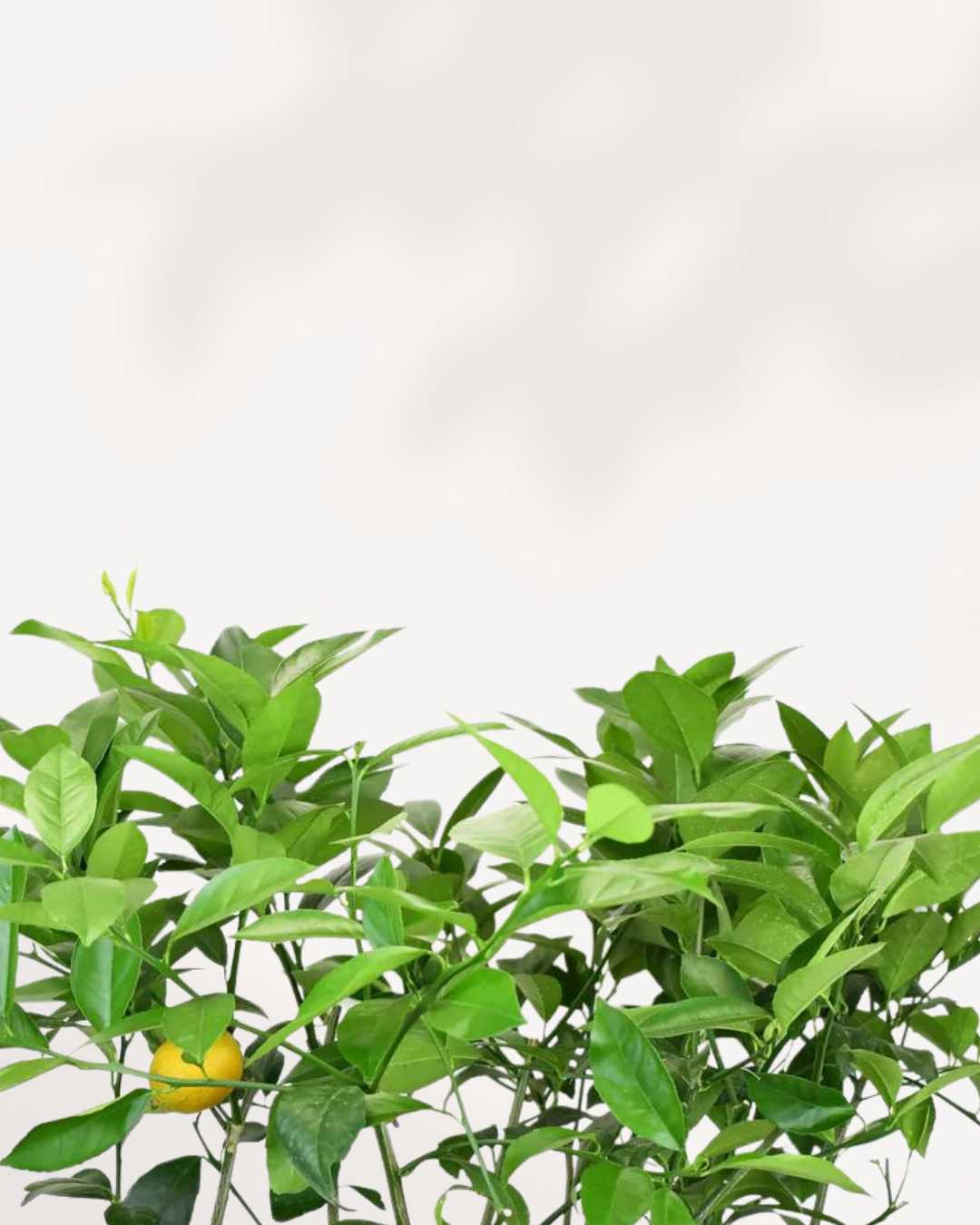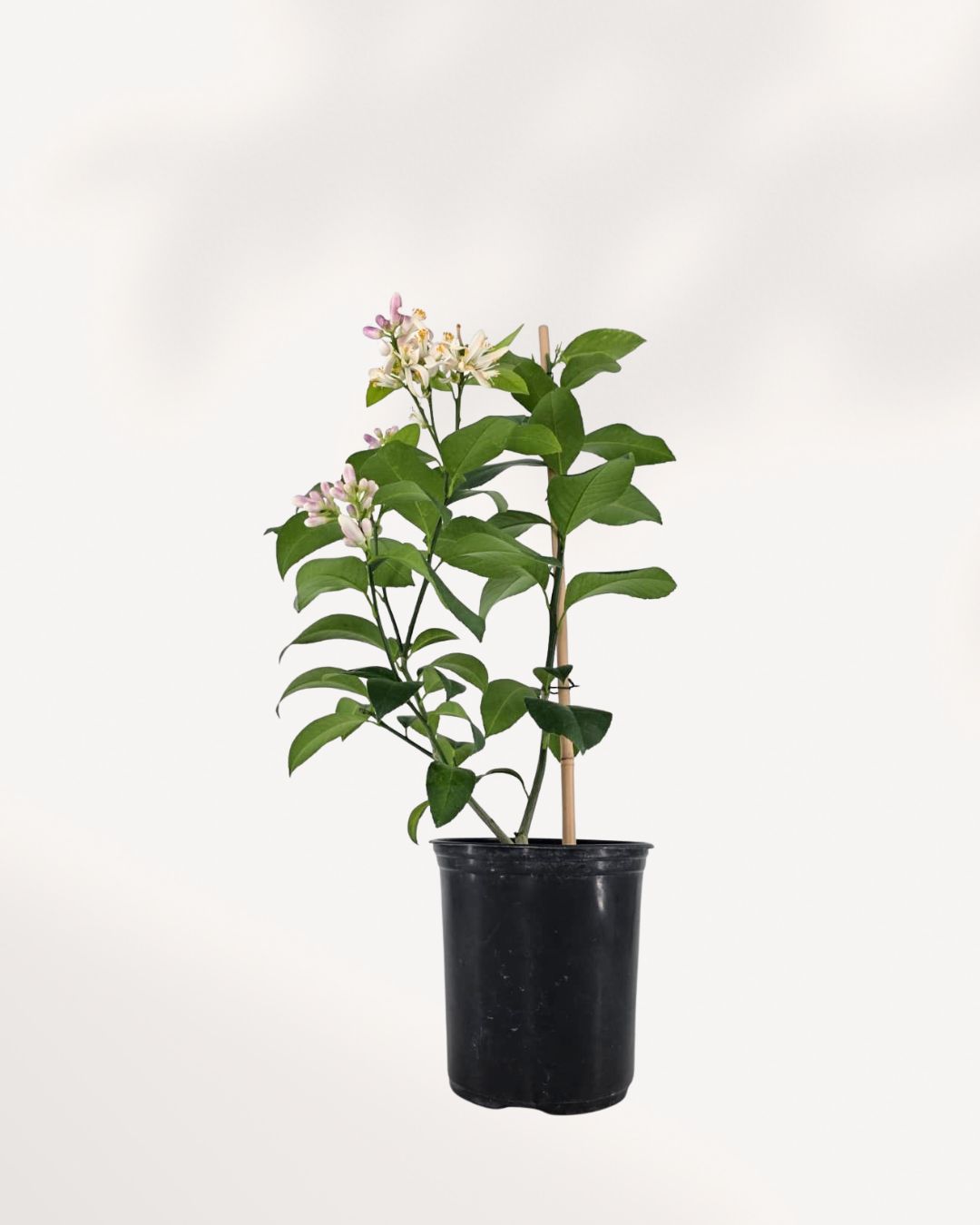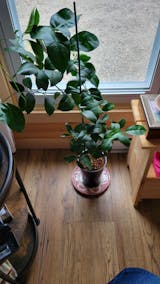Couldn't load pickup availability
Citrus Meyer Lemon: Fragrant Blooms and Homegrown Sunshine
Bring a touch of sunshine indoors with the Citrus Meyer Lemon (Citrus × meyeri), a beloved hybrid between a true lemon and a sweet mandarin orange. Its glossy green foliage, fragrant white blossoms, and tangy-sweet fruit make it a rewarding companion for both new and seasoned growers. Perfect for bright kitchens, patios, or sunrooms, this compact citrus tree brings year-round cheer and the unmistakable scent of fresh lemons.
Why Citrus Meyer Lemon Is a Customer Favourite
🍋 Homegrown Lemons All Year
Produces fragrant blooms and juicy, thin-skinned lemons with a sweeter flavor than traditional varieties.
🌿 Compact and Decorative
Ideal for pots and containers, adding lush greenery and citrus scent to indoor or patio spaces.
☀️ Loves the Sun
Thrives in bright light or full sun. Perfect for sunny windows or warm balconies.
🍊 Fragrant and Functional
From flowers to fruit, it’s beautiful, edible, and aromatically uplifting.
All the Details You Need to Know
The Story Behind This Plant
The Meyer Lemon originated in China and was introduced to the United States in the early 1900s. A cross between a true lemon and a mandarin orange, it’s prized for its lower acidity and sweeter taste. Compact and prolific, it’s become a favorite among home gardeners and chefs who love its versatility and fragrance.
How to Keep It Happy
- Light: Requires at least 6 hours of direct sunlight daily. Grow near a sunny window or use a grow light indoors.
- Water: Keep soil evenly moist but not soggy. Let the top inch dry between waterings.
- Humidity: Enjoys higher humidity. Mist leaves occasionally or place near a humidifier during winter.
- Soil: Well-draining potting mix with perlite or sand for aeration.
- Temperature: Prefers 18–27°C (65–80°F). Protect from frost and cold drafts.
- Feeding: Use a citrus-specific fertilizer every 4–6 weeks during the growing season for lush growth and fruiting.
Pest Prevention & Care Tips
Meyer Lemons are hardy, but can attract pests if stressed. Regular leaf cleaning and proper watering help prevent issues.
- Aphids: Small green or black bugs on tender new growth. Learn how to treat them.
- Spider Mites: Tiny webbing on leaves during dry indoor winters. Guide
- Scale: Sticky leaves or small bumps on stems. Learn more
Frequently Asked Questions by Plant Parents
-
Q: Will my Meyer Lemon tree fruit indoors?
A: Yes, it can. With enough sunlight (or a grow light) and proper feeding, indoor trees can bloom and fruit year-round.
-
Q: How long does it take for the plant to produce lemons?
A: Grafted plants can start fruiting within 1–2 years. Seed-grown plants may take longer.
-
Q: Can I move it outside during summer?
A: Absolutely. Just acclimate it gradually to sunlight and bring it back inside before temperatures drop below 10°C (50°F).
Popular Fruit Varieties
Citrus Calamondin Orange
- Tangy and ornamental, perfect for adding a burst of color to your collection.
Chinese Pomelo
- Large and sweet-tart, with a rich cultural heritage and decorative appeal.
Cherry Tomato
- Sweet, juicy, and perfect for both culinary uses and vibrant garden displays.
Ready to Grow Your Own Meyer Lemons?
Brighten your home with the scent of citrus blossoms and the taste of homegrown lemons. Add this beautiful fruiting plant to your collection today.
How to take care of Citrus Meyer Lemon
Sun: Direct
Sun: Direct
Light: Bright
Light: Bright
Water: When half dry
Water: When half dry
Humidity: Medium
Humidity: Medium
Pet Friendly: Caution
Pet Friendly: Caution
Pro Tip
Pro Tip
Delivery Policy for Plant Condition
Delivery Policy for Plant Condition
"I have only received part of my order. What to do?
No worries if you've only got part of your order! Our plants come from different nurseries and might arrive in separate shipments, typically 1-2 days apart. It's all part of ensuring your green friends reach you in top-notch condition!
If you do not receive the remaining packages within 48 hours contact support at info@mygreenscape.ca
What is the Life Time Support?
Absolutely! Lifetime support means you can count on us whenever you have questions or uncertainties about your plant. Whether you're puzzled by its behavior or just want to ensure it's thriving, we're here for you. Connect with us on Instagram @mygreenscapeto or shoot us an email at support@mygreenscape.ca.
When it comes to our guarantee for plants shipped with standard or express, rest assured that we offer a 30-day happy healthy plant guarantee on all such shipments. This ensures that your plants are covered for 30 days after delivery, giving you peace of mind regarding their condition. If you have any concerns within this period, feel free to reach out to us for assistance.
For further details, please visit our Local Delivery, Store Pickup, Standard Shipping Guide Page.
What to expect
What to expect
Your plant will arrive in a standard nursery pot, typically 0.5" - 1" smaller than the stated size to seamlessly fit into your chosen decorative pot. Washable Paper Planter Bags are available for separate purchase.
Just like nature intended, each plant is unique, showcasing natural variations in size, shape, and characteristics. Our commitment is to deliver a plant that closely resembles the one featured on our website, matching your chosen size, and with the potential to thrive happily in your home.
Frequently Asked Questions
Frequently Asked Questions
Certainly! If you're pondering about ordering plants online, you're not alone. We've compiled the most frequently asked questions. Check out our FAQ section here for quick answers! Happy planting!
Plant & Pot Size Chart
Plant & Pot Size Chart
Choosing the right pot size for your plants can be a daunting task, especially if you're new to gardening. But fear not! Our pot sizes chart can help you find the perfect match for your plants, ensuring they have enough space to grow and thrive. With our guide, you'll be able to confidently choose the right pot size and plant variety for your gardening needs.
Plant Pot Size Guide.

| Extra Small | 7-10 cm | 2.5 - 3 inches |
| Small | 11-12 cm | 3.5 - 4 inches |
| Medium | 14-17 cm | 5 - 6 inches |
| Large | 19-21 cm | 8 - 10 inches |
| Extra Large | 24-27 cm | 12 - 14 inches |
All sizes are specified in product details.
Your Complete Guide to Pot Sizes: What Size Should You Choose?

When selecting a pot for your plant, it's important to find the right size. But with all the different options out there, how do you know which one is best? We're here to help!
MyGreenscape's pot sizes chart is a great resource for finding your perfect fit. Our easy-to-read chart takes out all the guesswork and helps you quickly choose the right size for your plant.
Smaller pots are best for seedlings or small plants just starting out. These tend to be shallow but wide, allowing enough room for the roots of the young plant but not too much where they get overcrowded. Medium-sized pots are ideal when your plant has grown from its infancy and is ready for more space. These are deeper and wider than small pots, so that it can accommodate larger root systems - making sure your plant gets enough nourishment while still giving it breathing room. Large pots are top choice if you have an established plant in need of lots of space - think trees and large shrubs! The spacious depth and width allow plenty of room for deep root systems without struggling for air or light.
No matter what size you choose, MyGreenscape has got you covered, with our pot sizes chart guaranteeing you find the perfect fit every time!
Winter Shipping Protection
Winter Shipping Protection
We take extra care with each package during the colder months. For destinations experiencing cold weather, we provide insulated packaging and heat packs as needed to protect your plants from freezing temperatures. With Winter Shipping Protection, your plants are equipped to arrive safe and sound, even in winter’s chill.
Care Guide
Care Guide
Explore essential care tips. check out our Comprehensive Resource for Indoor Plant Care.






WATERING MADE EASY
Check soil moisture before watering and use a potting mix that drains well. It’s the secret to healthy, happy plants!
Hear From Happy Plant Parents.
Who have brought Mygreenscape plants into their homes.














